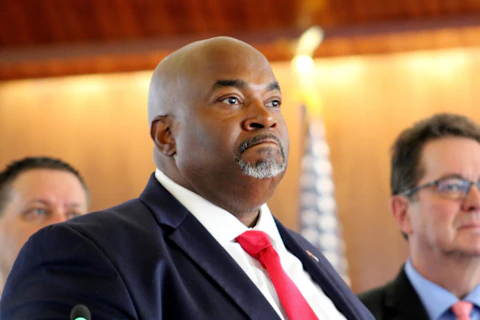A military spouse argues why it’s so imperative all members of the US military vote this, and every, election.
As one of the populations directly impacted by who the commander-in-chief is, military service members have a unique perspective on presidential elections. In many ways, they are forced to remain silent. That doesn’t mean they vote as one: Service members can be found all over the political spectrum.
When it comes to elections, the military does a great job of encouraging service members and spouses to register to vote and vote by mail, without pushing one candidate or another. In fact, Joint Chiefs Chairman Gen. Mark Milley has taken pains to stress the military’s apolitical nature.
In 2016, however, one Army officer declared in an opinion piece for the New York Times that he thought it was his professional duty not to vote. The perspective was met with resistance then, and was recycled recently on Twitter, garnering criticism once again.
Many of the points made in that piece go against what many officers and enlisted service members consider to be at the very crux of the military lifestyle. If there’s anyone better suited to vote on the next commander-in-chief, it’s those who are currently serving.
Sorting Fact From Fiction: Sign Up for COURIER’s newsletter.
M.L. Cavanaugh, the op-ed’s author, argued that prestigious military officers like George S. Patton, Dwight D. Eisenhower, and David H. Petraeus all refrained from voting while in uniform, and their example should be followed. If military officers conducted themselves in every way like Patton, Eisenhower, and Petraeus, we’d be having very different conversations right now. Taking one example from a senior leader and turning it into policy is dangerous.
It’s also wrong to assume that service members can’t separate their political opinion from their job. There is no room in the military for influencing someone else’s vote, but there’s plenty of room for encouraging them to vote.
The cultural and institutional gap between the military and civilian communities is already significant, and the notion that abstaining from the voting booth as some sort of higher calling is just another way to widen that gap. Serving in the military doesn’t make you a better American than anyone else—it certainly doesn’t mean your vote means more or less.
When your life depends on the decisions made at the top, why shouldn’t you exercise your right to vote for that person? As a military spouse, the person occupying the White House directly impacts my life in more ways than you might realize.
The budget that passes—or doesn’t pass—dictates how much my husband earns for our family. The decisions made about international relationships can quickly turn into deployment orders for troops. The pride a president shows when welcoming home troops is mirrored in our hearts, and the negative comments made about service members and their families cut deep.
Turns out, I’m not the only person who feels this way about the power of my vote.
According to data analyzed by Military Times last week, overseas absentee ballots returned by service members to the US have increased by 51%, compared to the same time period in the 2016 general election, from the beginning of September through Oct. 14.
No one should waste their right to vote. As General George Washington said in 1775: “When we assumed the soldier, we did not lay aside the citizen.”




